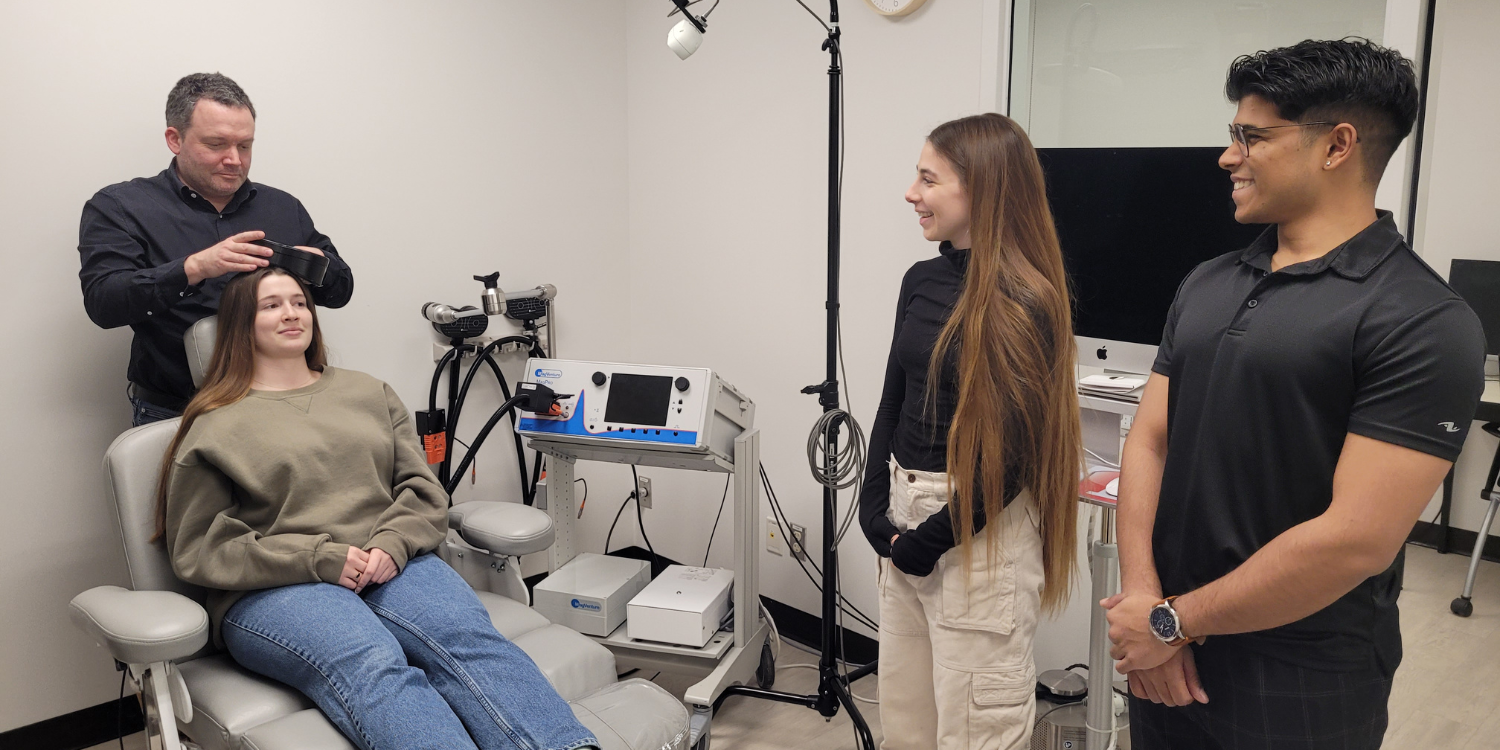
Program
BSc, Health Sciences
Supervisor
My thesis
As global COVID-19 cases exceed 620 million, an increasing proportion of cases report persistent symptoms beyond the onset. Symptoms that remain beyond 3 months after the onset of SARS-COV-2 are classified as Post-COVID-19 Syndrome (PCS). 10-35% of non-hospitalized individuals infected with SARS-COV-2 report persistent symptoms 3-12 weeks after infection, and 2-10% of vaccinated individuals report persistent symptoms 12 weeks after infection.
PCS symptoms, including fatigue, psychiatric symptoms, and cognitive dysfunction, may differ or be similar to acute COVID-19. Effective treatments for PCS are being explored in the area, for example, a small pilot study suggested that non-invasive brain stimulation methods may be effective for PCS symptoms; however, this trial used a brain stimulation method which is known to provide placebo effects.
Repetitive Transcranial Magnetic Stimulation (rTMS), a technique that uses patterns of magnetic pulses administered to influence endogenous neuroelectric activity in the cortex, is a more reliable and effective method than other stimulation methods. It is also used in clinical practice to treat symptoms of psychiatric conditions, including depression and anxiety, which have a high degree of symptom overlap with PCS.
In this study, we will use a relatively newer variant of rTMS called intermittent theta burst stimulation (iTBS), which offers a shorter stimulation duration (85% shorter), low stimulation pulse intensity, and possibly improved efficiency compared to standard rTMS in treating psychiatric illnesses and cognitive dysfunction.
Why did you do this project?
As COVID-19 cases continue to rise globally, an increasing number of people are experiencing persistent symptoms beyond the initial infection, known as Post-COVID-19 Syndrome (PCS). PCS can include symptoms such as fatigue, psychiatric symptoms, and cognitive dysfunction, which may differ or be similar to acute COVID-19. Treatment options for PCS are being explored, including non-invasive brain stimulation methods such as Repetitive Transcranial Magnetic Stimulation (rTMS) and its newer variant, intermittent theta burst stimulation (iTBS). A small pilot study showed positive results for using rTMS, and iTBS offers shorter stimulation duration, low stimulation pulse intensity, and potentially better efficiency than standard rTMS in treating psychiatric illnesses and cognitive dysfunction.
What did you enjoy about it the most?
I love the fact that we are doing relevant research on topic that we know very little about and impacts so many people around the world. It is rare at the undergraduate level to be able to do such relevant research and I am glad that my supervisor allows for me the opportunity to do just that!
How do you think it will help in the future?
I hope to pursue a future in research and I think understanding the time and commitment that goes into a research study is really important for my success.
The undergraduate thesis is not easy by any means but it is extremely rewarding because it helps students prepare for future graduate programs that expect a certain level of proficiency in not only the various research methods but also the ability to work under supervision model that those in traditional undergraduate classes may not be used to.